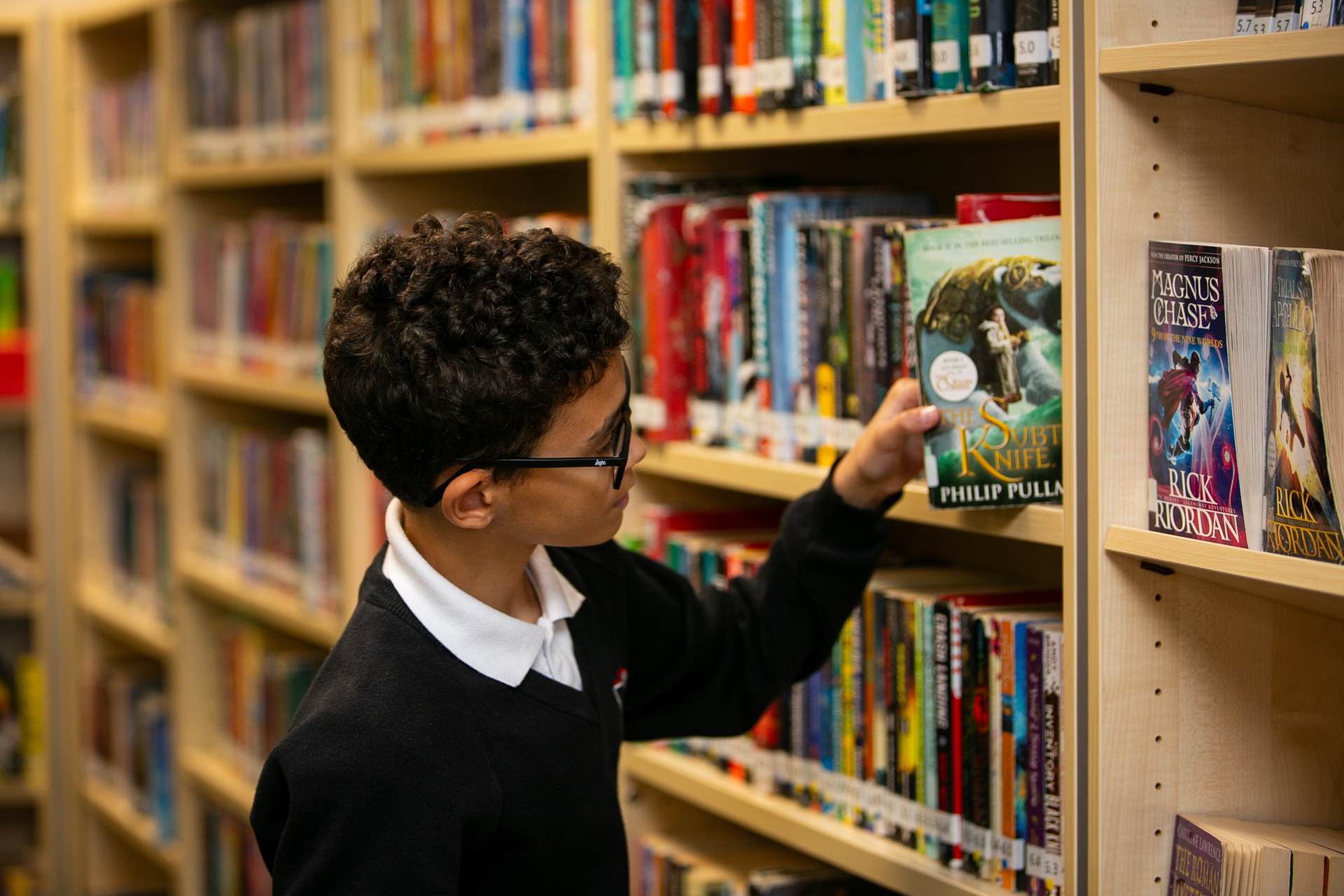English
-
Ms J SimpsonHead of Faculty
Ms J Simpson
 The English Department at Claydon High School aims to develop students’ skills in all of the main areas of reading, writing, speaking and listening, and to foster a climate in which creative and analytical work can thrive.
The English Department at Claydon High School aims to develop students’ skills in all of the main areas of reading, writing, speaking and listening, and to foster a climate in which creative and analytical work can thrive.
Many different strategies are employed to enhance learning. These may involve independent, paired and group work along with whole class activities. Students will be engaged in many different types of tasks. These may include opportunities for individual and class reading, extended writing, focused reading tasks and skills-based activities and research, along with a wide range of speaking and listening activities.
The Department organises trips to the theatre and other places of interest. In addition, guest writers and theatre groups are encouraged to visit when available.
Key Stage 3
What will I learn? How will I be assessed?
Our schemes of work incorporate a wide range of texts overtime to meet the needs of the KS3 curriculum. Students study English for 7 lessons per fortnight. Year 7 students begin their studies with a unit on autobiographical text which culminates in the production of individual piece of pastiche writing. Later units in Key Stage 3 involve study of class readers, short stories, poetry and the media. We also study Shakespeare and a complete play is examined in detail in Year 9.
Writing tasks cover a full range and include stories, poems, play scripts, essays and articles. The importance of correct spelling, punctuation and grammar is emphasised throughout via individual marking, discussion with students, and whole class assessment. We also take part in national writing assessments. Equally, we maintain a focus on the importance of proofreading and redrafting: key skills which are vitally important later at KS4.
The promotion of reading is seen as particularly important and all students are encouraged to read widely. We use Accelerated Reader to measure students' progress and successes. Students visit the Learning Resources Centre (LRC) regularly in Years 7, 8 and 9 to develop independent reading and they also work through LRC reading booklets which helps them to experience a wide breadth of texts.
Speaking and listening tasks are also heavily promoted and a number of whole year competitions are organised which include: a Shakespeare performance, Spelling Bee and a persuasive speech competition. Assessment is accomplished through paired and group activities.
NP - The curriculum is enhanced by events in school and trips and visits. In the last year we have taken students to the theatre, World War One Battlefield sites in France and Belgium, Book Mastermind and debating competitions.
Key Stage 4
ENGLISH LANGUAGE AND LITERATURE
English is a core GCSE, firstly, as it will be integral in order for students to gain a place on their chosen courses after GCSE, but also, because students learn key communication and literacy skills important to life whatever direction they choose.
What will I learn? How will I be assessed?
Exams
The department delivers the Eduqas specification for English Language and the Edexcel specification for English Literature. Both courses do not have any coursework and are assessed wholly on four exams: two for Language and two for Literature (closed book). For Language, students will be taught to read a range of texts from 19th Century through to the 21st Century in both fiction and non-fiction. They will also have to write in a range of different forms and purposes. In Literature, students will read a 19th Century novel, a Shakespeare play, a modern novel/play and a range of poetry. Students' work will be assessed through regular teacher marking, unit assessments and internal exams. The department supports students with intervention strategies which include: LSA support in lessons, after-school revision sessions and pre-exam breakfast warm-up sessions.
KS3 and KS4 English Curriculum Map

